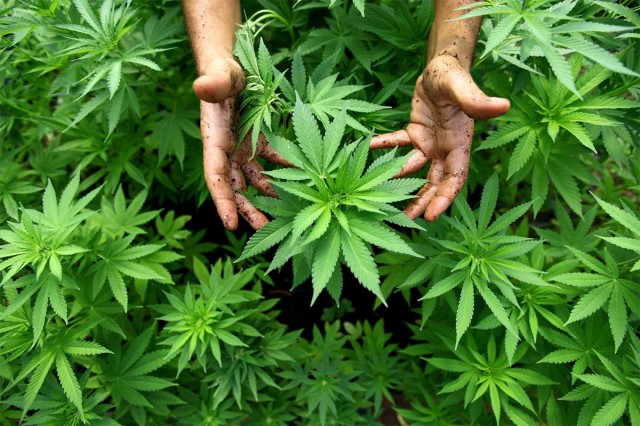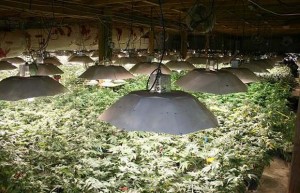 Though I am (obviously) an impassioned supporter of cannabis and all the wonderful things it can do, I do have one area of concern when dealing with mass production and distribution of cannabis: its effect on the environment.
Though I am (obviously) an impassioned supporter of cannabis and all the wonderful things it can do, I do have one area of concern when dealing with mass production and distribution of cannabis: its effect on the environment.
I, for one, believe that nationally legalized cannabis would go a long way to bring mass-weed farming into alignment with environmentally responsible agriculture practices. Legality brings with it a bevy of public scrutiny, media attention and (possibly) government oversight that would pressure producers to be “green” when they are growing the green.
At a certain critical mass, cannabis production becomes a large-scale agricultural endeavor. Growing a few plants in your home will not likely leave too drastic a footprint on the world, but what of the enormous pot farms that supply an ever growing weed-hungry populace? What of the slough of illegal weed grows? Faced with impending national legalization (it’s only a matter of time), this is an issue that is not going to disappear any time in the near future.
Growing plants requires a lot of water and sunlight. In the case of weed, where outdoor grows are compromised by fluctuating weather, temperatures and the threat of unwanted cross-pollination, natural sunlight becomes problematic. To sidestep this issue, electric lights have been used as a faux-sun (one that can be programmed to provide exactly 12 hours of daylight). If the cannabis is grown hydroponically, a constant supply of fresh water is needed.
 These technological shortcuts have granted us the ability to grow amazing buds, but their cost on the environment can be quite extreme. For instance, in drought-riddled California, mass-grow operations have further depleted water volume in Northern California’s forest streams. This has a domino effect that ripples through the whole eco-system. It affects the health of the plants and creatures and, make no mistake, it affects humans too. Absolutely everything is interconnected and if we turn a blind eye to the impact of these grow-ops we will do so at our own peril.
These technological shortcuts have granted us the ability to grow amazing buds, but their cost on the environment can be quite extreme. For instance, in drought-riddled California, mass-grow operations have further depleted water volume in Northern California’s forest streams. This has a domino effect that ripples through the whole eco-system. It affects the health of the plants and creatures and, make no mistake, it affects humans too. Absolutely everything is interconnected and if we turn a blind eye to the impact of these grow-ops we will do so at our own peril.
Some things are already being done, such as switching to special LED bulbs that don’t get nearly as hot or draw nearly the electricity as halogens. But more needs to be done, and sooner is better than later. Firstly, it’s just the right thing to do. With motivation and science, I believe there is a way to grow cannabis responsibly. Renewable energy sources and better water management can go a long way. Secondly, it sort of goes against the cannabis zeitgeist to be destructive. Stoners are generally peaceful and want a thriving planet.
Of course, this would all be much easier if cannabis was nationally legal. Legal enterprises are much more apt to try and do the right thing (even if only due to consumer gripes). However, what’s the drive for illegal pot grows to do things cleanly? If you’re already outside the law, why would you feel concerned with your eco-footprint?
As is often the case in matters like this, the impetus falls to the consumer to demand responsibly grown weed. I know this can be difficult since there are many layers and intermediaries between the grower and the consumer, but it can’t hurt to keep it in mind as this marijuana revolution continues to generate torque.









